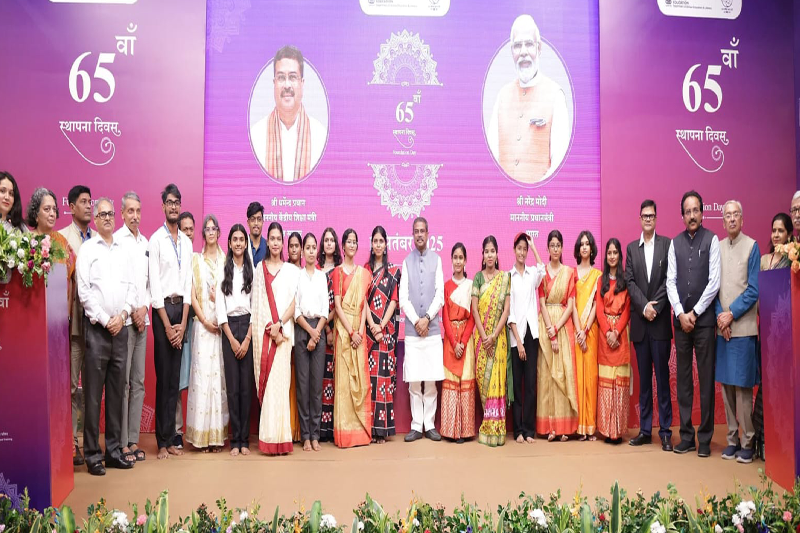
NCERT’s Role in Nation-Building: Education Minister Dharmendra Pradhan Emphasizes Clarity, Competence, and Cultural Confidence
On the occasion of the 65th Foundation Day of NCERT, Union Education Minister Dharmendra Pradhan delivered a significant address that underlined the institution’s central role in shaping national consciousness, developing competencies, and raising knowledge levels among Indian citizens. Speaking at an event in New Delhi on Monday, Pradhan emphasized that education must not only be modern and competitive, but also rooted in Indian languages and identity.
“Clarity Comes From Our Own Languages”
While acknowledging the need for English proficiency among students, Pradhan stressed that conceptual clarity is best achieved when education is grounded in Indian languages.
“Children need to be proficient in English… but our clarity needs to improve. Clarity will improve in our own languages,” he said.
This view aligns with the National Education Policy (NEP) 2020, which places strong emphasis on mother-tongue-based learning, especially in foundational stages.
NCERT as Nation Builders
Pradhan outlined the key responsibilities of NCERT, stating:
“NCERT’s responsibility is to make the people of the country competent and improve knowledge levels… you are nation builders.”
He urged the institution to integrate the best global educational practices while remaining deeply rooted in Indian values and perspectives. He reiterated that education is a tool for nation-building, not just individual advancement.
New Modules Reflecting National Memory and Identity
Pradhan also praised recent additions to the NCERT curriculum, such as modules on Operation Sindoor and ‘Partition Horrors Remembrance Day’, calling them important steps towards acknowledging historical truth and national trauma.
These modules are part of a broader move to ensure history education reflects both achievements and struggles, and fosters a sense of cultural and historical awareness among students.
Former ISRO Chairman S. Somanath Reflects on NCERT’s Impact
Also speaking at the event, former ISRO Chairman S. Somanath offered a deeply personal testimony on the influence of NCERT textbooks in his own educational journey.
“I became somebody only because of the books that NCERT produced… We are the products of what we learn in our childhood. Our careers and aspirations were shaped by what we learnt in those books.”
However, Somanath also acknowledged the gaps in representation, particularly in terms of showcasing India’s scientific heritage:
“The book that I learnt from – though it created me, where I’m standing today – it could have still been better… The scientific accomplishments of our nation were not mentioned in greater detail that I could appreciate.”
He noted the absence of India’s ancient contributions to science and technology in earlier textbooks and expressed optimism about current reforms:
“Today, change is happening, transformation is visible.”
Learning Rooted in Language and Cultural Relevance
Somanath also echoed Pradhan’s concerns about over-dependence on foreign educational content, especially at the higher education level:
“One of the biggest problems… I relied on books and content sourced from so many other nations. There were great textbooks in higher education. But many of them were not written in our languages.”
He advocated for increased efforts in content creation in Indian languages, a move that aligns with broader government policies aimed at making education more inclusive and contextually relevant.
Moving Forward: NCERT’s Expanding Role
Both leaders’ remarks highlight a shared vision: education in India must evolve to be globally competitive while remaining intrinsically Indian. As the NCERT continues to revise its textbooks and curriculum, particularly under the guidance of the new National Curriculum Framework, its decisions will shape how future generations understand not just math and science, but also history, identity, and civic responsibility.
At a time of educational transition, these remarks serve as a reminder of the power and responsibility of curriculum development — not only to inform, but also to inspire, connect, and transform.
As India reimagines its educational landscape for the 21st century, NCERT’s role remains pivotal in ensuring that students are not just competent professionals, but also confident, culturally rooted citizens.


